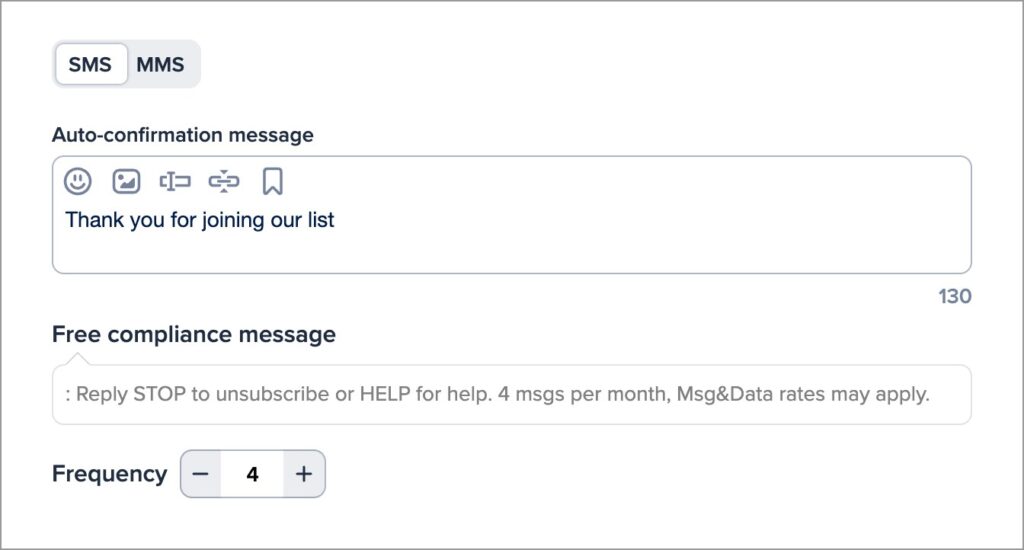6 ways responsible businesses avoid carrier filtering
Learn how businesses and SMS marketers avoid carrier filtering and make sure their messages reach their customers' inboxes.

Learn how businesses and SMS marketers avoid carrier filtering and make sure their messages reach their customers' inboxes.

On an average day, consumers check their text messages more than 11 times a day — more than any other app on their phones.
It’s no wonder so many businesses are investing in SMS marketing. You can send a text to all your customers, small groups of customers, or even individual customers, knowing that your message will almost certainly be seen.
But one wrong move and you could accidentally get your well-intended message flagged as spam by wireless carriers.
Luckily for legitimate businesses like yours, reducing your risk of carrier filtering — or message filtering — is simple once you understand how carrier filtering works, know how to write messages that don’t sound or look spammy, and follow SMS marketing best practices.
Carrier filtering is the action phone carriers like AT&T, Verizon, and T-Mobile take to block the delivery of text messages that are deemed inappropriate or spammy from a specific number or business.
While carrier filtering can be inconvenient for legitimate businesses, it’s essential for the integrity of the SMS industry. If message filtering didn’t exist, spammers and scammers could send as many unwanted messages as they want without consequences.
This would erode consumers’ trust in text messaging, and businesses using SMS marketing responsibly would see a decrease in the channel’s effectiveness.
Typically, customer complaints activate messaging filters, with the carrier immediately blocking future messages from the reported number.
But carriers also filter messages to:
Carriers are super secretive about their message filtering systems to prevent spammers from learning how to dodge these protections, but there are a few methods we do know about.
Unlike email, where the recipient can choose to block email addresses, mobile carriers don’t take user preferences into account when blocking a message. So, you have to be extra careful when sending text messages to customers.
Each wireless carrier has its preferred method of message filtering. Some of these SMS spam filters use a list of keywords that prevent text messages from getting through. Others use advanced machine learning filters that protect customers from an invasion of unwanted messages in real time.
Promotional text messages may get blocked for two reasons: unintentionally spammy content and high-volume texting.
Here are the top ways responsible businesses and organizations avoid carrier filtering:
The CAN-SPAM Act is one of the more popular SMS marketing laws. It regulates how you can send text messages and to whom.
This act gives recipients the right to opt out of business communications with a specific business and sets penalties if the business doesn’t respect their request.
Here are some of the CAN-SPAM regulations:

Screenshot of the free compliance message in the SimpleTexting Keyword tab
Before sending a single promotional text, responsible businesses get written consent (also called an opt-in) from individuals.
Even if they’ve already collected a customer’s information for another purpose, like sending order updates, they still ensure that the customer wants to receive marketing messages via text.
Not only does this help keep their messages from being blocked, but it’s required by the Telephone Consumer Protection Act (TCPA), which protects people from automated and unwanted messages.
💡 Learn more about some of the popular opt-in methods for SMS marketing.
There’s no official list outlining common spam trigger words/topics, but experts agree that certain words and phrases are spammy.
“Financial gain” spam words:
“Freebie” spam words:
“Exaggerated claim” spam words:
“Fear of Missing Out (FOMO)” spam words:
General-use SMS spam words:
The risk of carrier filtering increases when texts contain special characters (like % and #), emojis (😭), and words in all caps.
Whenever possible, SMS marketing pros keep their text messages short and sweet, not long and rambling.
While you can send text messages up to 1,600 characters, thanks to MMS messaging, there are few (if any) times when a marketing text message would warrant using that many characters. One to three sentences is typically sufficient.
To avoid getting their messages flagged as spam, SMS marketing pros:

Generic and repetitive messages that are sent to hundreds or thousands of people at once tend to get caught up in SMS filters.
Responsible businesses prioritize sending SMS campaigns that offer consistent value to their contacts and aren’t repetitive. This means that they use tools like segments and custom fields to personalize their text messages.
At the end of the day, marketing text messages should sound like they’ve come from a living, breathing person and not a bot.
Ignoring carrier regulations can jeopardize SMS marketing campaigns before they even begin. These regulations help protect consumers, so you must consider them when defining your message strategies and drafting your SMS.
The good news is, SMS compliance isn’t too hard. You can easily avoid sounding spammy by:
Want to make things easier? Select an SMS service that can help you stay up to date on best practices and industry updates.
Try SimpleTexting free for 14 days to learn how to run effective, personalized SMS marketing campaigns that spark engaging one-to-one conversations with customers.
71% of consumers are signed up to receive texts from businesses in 2023. We surveyed 1,400 consumers, business owners, and digital marketers to understand how these parties view and use SMS in 2023.
ReadAbbreviations, acronyms and slang are common place in SMS messages, even those sent out by businesses. Use this quick guide to decide when and how to use SMS abbreviations.
ReadStart a text marketing campaign or have a 1-on-1 conversation today. It's risk free. Sign up for a free 14-day trial today to see SimpleTexting in action.
No credit card required